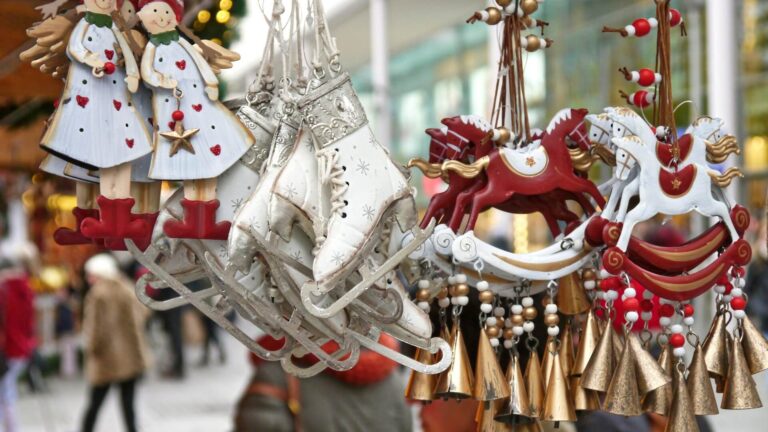
If you need a freelance travel writer or you would like to see your country, city, flight, etc., presented on the blog, drop me an email.
Find our more on Freelance Travel Writer page.
FROM BELGRADE: 266 kilometers
FROM NIŠ: 312 kilometers
That’s exactly what was on my mind when I planned my trip to this remarkable part of Serbia. And now, as I write these lines, my eyes wander across the endless green hills, recalling how I attempted to photograph a 15th-century church, admired vibrant traditional rugs in a house dating back to 1900, and marveled at the fact that, just days ago, I climbed a steep 1,200-meter trail!
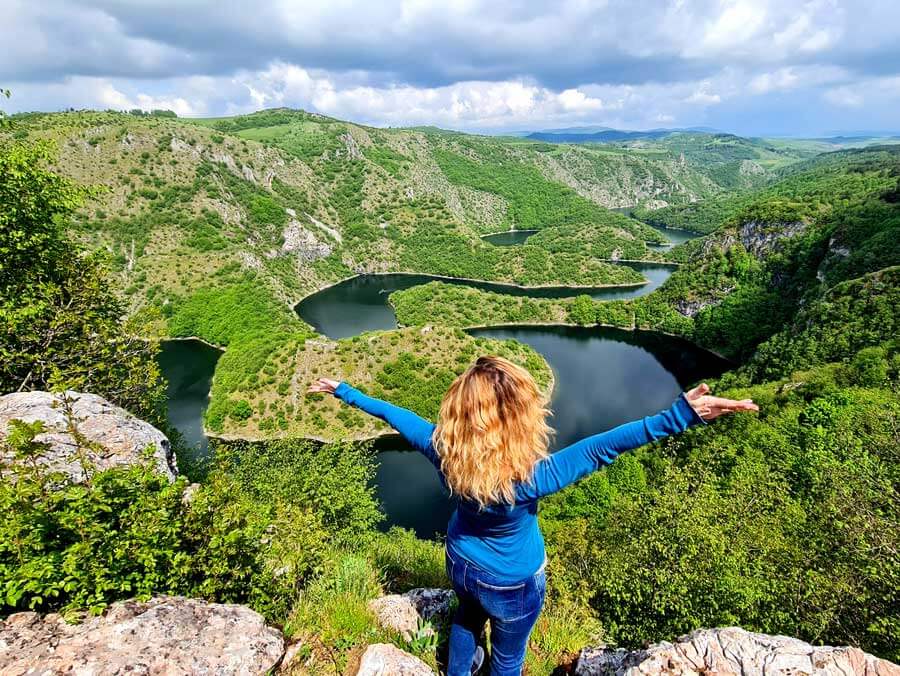
Uvac Canyon Serbia
The Uvac Nature Reserve, nestled in southwestern Serbia, is a haven of natural beauty, spanning over 7,500 hectares. Two-thirds of the Reserve lies in the Nova Varoš municipality, with the remainder extending into Sjenica. The altitude ranges from 760 to 1,322 meters, offering a landscape as varied as it is stunning.
The Reserve is best known for the Uvac canyon, carved by the Uvac River as it slices through towering cliffs. Thanks to unique geological conditions, the area is rich in caves, including the fascinating Ice Cave, adorned with glistening white formations. This sanctuary is also home to 130 bird species, with the iconic griffon vulture stealing the spotlight. Remarkably, it was here that the griffon vulture was saved from the brink of extinction, making Uvac canyon Serbia a conservation success story. The Reserve is the second-largest of its kind in Europe and the most expansive in the Balkans.
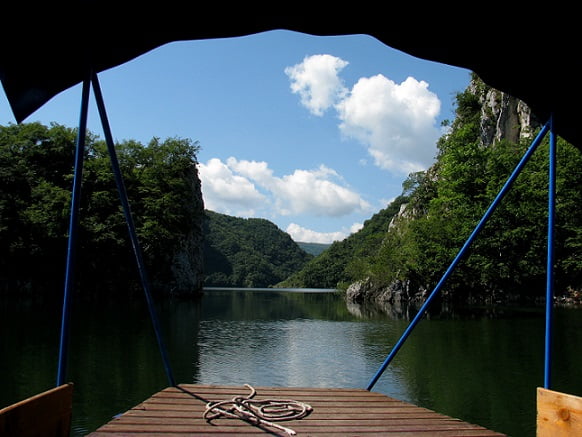
You simply cannot visit Zlatar without exploring Uvac, and trust me, you wouldn’t want to! The 119-kilometer-long river is dammed in three places, creating three magnificent lakes: Uvac (or Sjenica) Lake, Zlatar Lake (a popular stopover on the route from Belgrade to Montenegro near Kokin Brod village), and Radoinja Lake. The Uvac River winds its way through the mountains, forming mesmerizing meanders that are a highlight for every visitor. And if the stunning scenery isn’t enough, you might spot griffon vultures soaring majestically overhead, their survival a testament to the Reserve’s dedicated efforts.
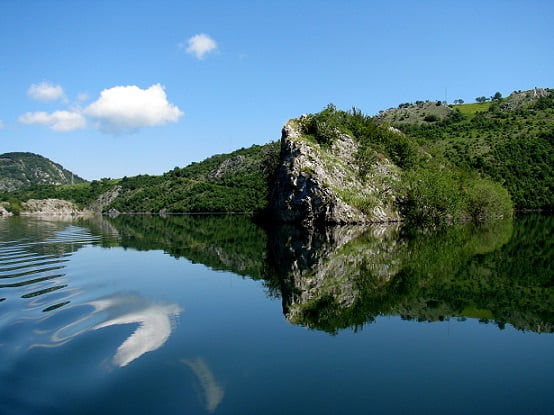
“There was a time when fewer than 10 of these birds remained, but today we proudly count between 400 and 500 adults, along with 104 fledglings,” explained Mićko, our guide, as he expertly steered the boat across Uvac Lake. My jaw dropped when he shared that a griffon vulture’s wingspan can reach up to 3 meters, enabling it to cover incredible distances. Birds from Uvac have been tracked in Greece, Israel, and even as far as Yemen, completing a 3,500-kilometer journey!
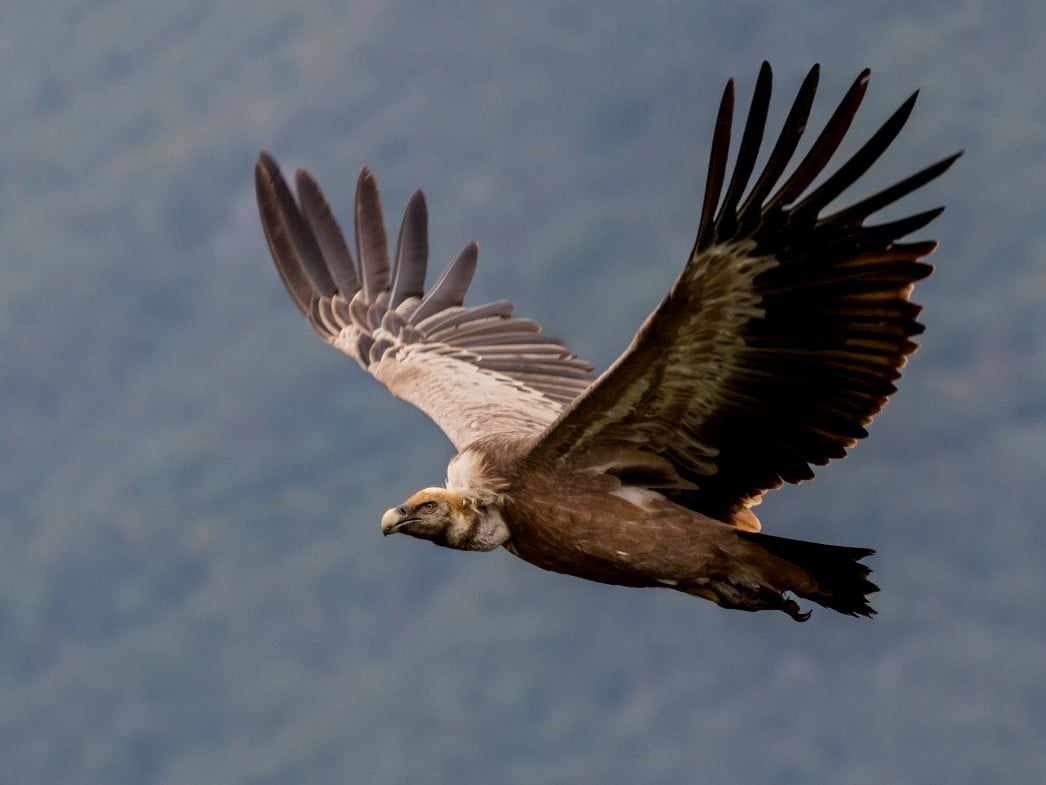
Mićko slowed the boat as we approached a rocky ledge where a young vulture stood. Unlike most birds, griffons cannot lift off from flat ground; they rely on the high cliffs to launch into the air. All of us onboard silently rooted for the bird to catch the wind and take flight, knowing it would otherwise risk falling into the lake, where it would be defenseless.
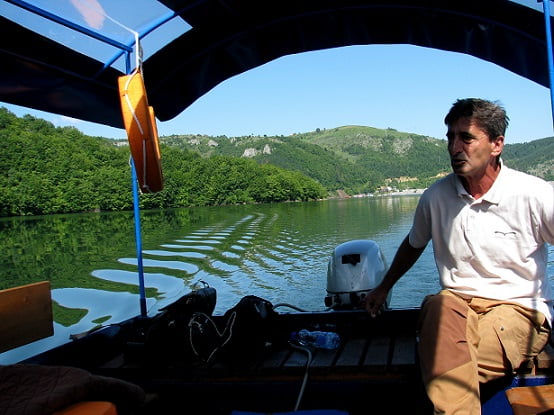
“The griffon vulture can soar as high as 12,000 meters,” Mićko continued, leaving us blinking in disbelief. Imagine a bird flying at the same altitude as an airplane! This remarkable species never preys on live animals and can safely ingest diseases or toxins, including anthrax, without harm.
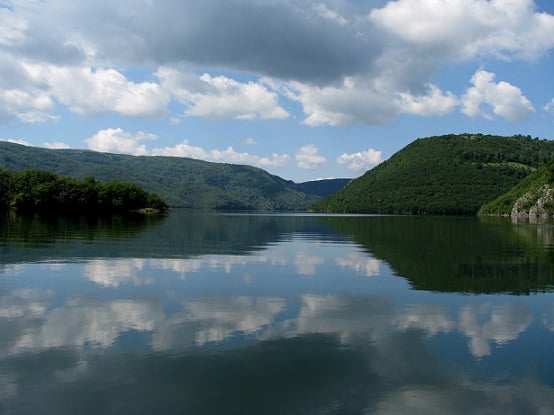
The Reserve has also reintroduced two other bird species: the cinereous (or monk) vulture and the Egyptian vulture. Efforts are now underway to restore the bearded vulture, which feeds primarily on animal bones. It’s fascinating how nature has perfected this ecosystem: one species consumes flesh, another devours bones, and all harmful pathogens are neutralized within the birds’ bodies—all while they grace the skies above Uvac canyon Serbia with their regal presence.
The Reserve cruise, priced at around 15-20 euros (higher if booked through agencies), offers an unforgettable experience. The boat ride takes you through the dramatic Uvac Gorge, with a stop at the Ice Cave, where hand-held lamps guide you through its shadowy corridors. From there, you’ll hike to a viewpoint offering a spectacular perspective of the Uvac meanders. Our group visited the Great Peak (Veliki Vrh), which stands at 1,230 meters, just across from the famous Prayer (Molitva) viewpoint. (See the Sjenica Serbia post for more about Molitva.)
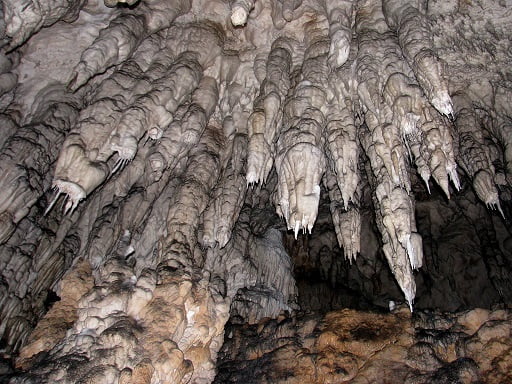
The climb to the viewpoint is steep and slippery in places, but if you’re reasonably fit, the 30-minute hike is manageable. As the trail winds through bushes, the summit remains hidden until you reach two benches marking the final stretch. Then, the first glimpse of Uvac canyon Serbia makes every drop of sweat worth it. The meanders curve gracefully towards Sjenica, while tourist boats appear as tiny specks below. Occasionally, the white-headed ruler of the skies glides serenely past.
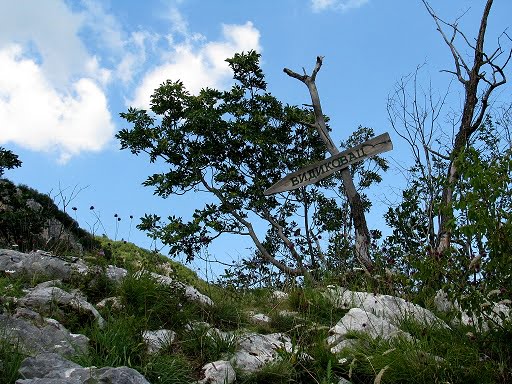
Cameras inevitably work overtime here, but don’t forget to take a moment to soak in the view. Our little group even found a cozy wooden cabin near the viewpoint offering coffee, rakija, and water. We raised our glasses to the awe-inspiring panorama stretching for miles.
The boat tour typically starts at 10 a.m., reaching the viewpoint around noon and concluding by 3 p.m. Be prepared: there are no restrooms along the way, so plan accordingly. Carry some water and snacks, and brace yourself for a tiring but utterly rewarding adventure. You’ll leave feeling proud and brimming with unforgettable impressions of Uvac canyon Serbia!
Click here if you’d prefer to book some of the cottages nearby the Uvac meanders. This is a true treat since they are mostly cabins that will enrich your time here with a wood scent inside and out. If you’d rather have an accommodation closer to the main road, this traditional resort may be the best option. It’s also in the close range of another great viewpoint overlooking the Radoinja Lake.
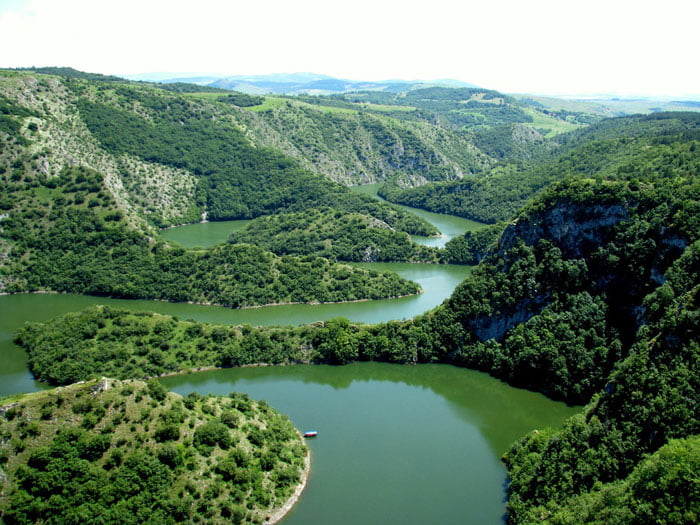
Zlatar Serbia
Zlatar is a mountain in southwestern Serbia, with its highest peak, Golo Brdo, reaching 1,627 meters. This stunning region is a favorite among those seeking active vacations, offering hiking trails and bicycle paths in the summer, skiing in the winter, an Adrenaline Park, and the serenity of unspoiled nature—a far cry from bustling shops and bars.
Situated at the meeting point of Mediterranean and mountain climates, Zlatar enjoys abundant sunshine throughout the year and benefits from unique airflows merging in the area. These features make it a haven for individuals with cardiovascular issues or high blood pressure. Covered with forests and pastures, Zlatar is renowned for its white cheese and expansive fields of buckwheat.
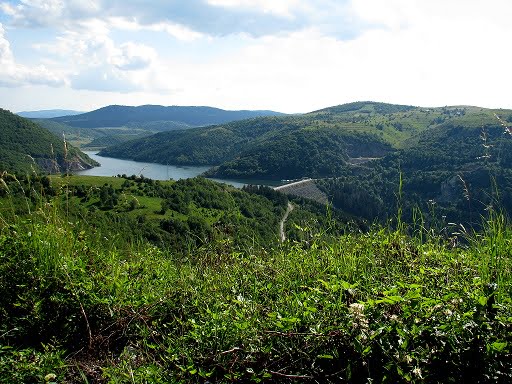
My visit to Zlatar revolved around one thing: buckwheat. It began with savoring buckwheat pancakes while planning my tour with the Tourism Organization team. Later, I delved into learning about this remarkable plant. For now, I hopped into my little car and ventured from one Zlatar village to another, determined not to miss a thing!
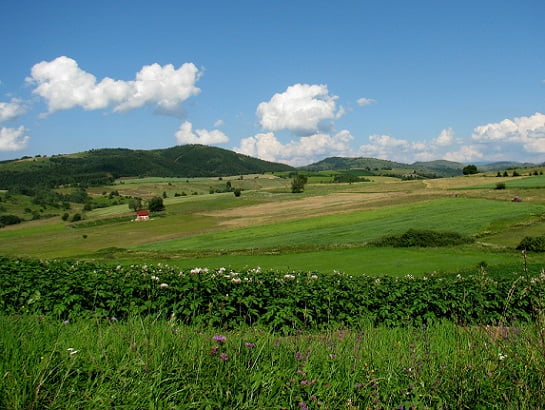
A key highlight of the area is the Uvac Canyon Serbia, located 12 kilometers off the main road to Nova Varoš. Driving over the dam at Uvac Lake, I was greeted by endless hills—some cloaked in forests, others in sprawling pastures. At times, it felt as though I were driving above mountain peaks, so close to the fluffy white clouds above. This sensation continues when you wander among Zlatar’s pine trees. As you stroll, the dense forest conceals the breathtaking views until they suddenly reveal themselves through gaps in the pines, leaving you in awe.
But let’s get back to our road trip because the next stop is unmissable, nestled right by the roadside.
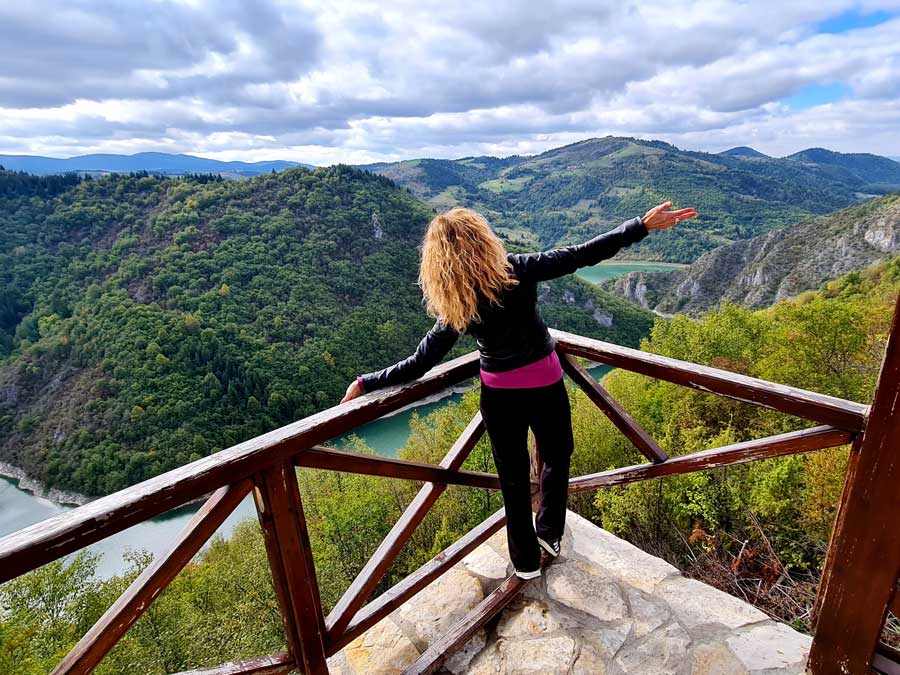
There are 4 observation decks on Zlatar: Vraneša near the village of Kokin Brod (with a view of Uvac meanders of the Radoinja Lake), Hodžina Stena (overlooking Nova Varoš), Savina Stolica (on the way to Štitkovo), and in the mountain center. (Click the names for GPS locations.)
Dubnica Monastery
Located in the village of Božetići, 19 kilometers from the main road or just 7 kilometers from Uvac Canyon Serbia, Dubnica Monastery is a gem of history and spirituality. According to local lore, the site once housed an older structure dating back to the early 15th century. The monastery flourished two centuries later, during the time of Gavrilo Rajić Rašković, a prominent Serbian Orthodox patriarch from the noble Rašković family, which was connected to the 12th-centrury royal Nemanjić dynasty. During the Ottoman period, it served as a secret place for baptisms and weddings.
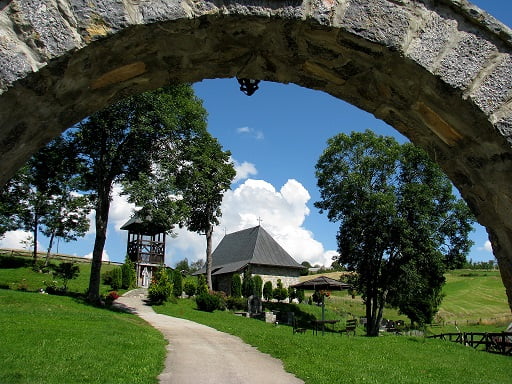
Amid seemingly endless pastures on either side of the road, the small stone monastery suddenly emerges, its humble beauty captivating. Passing through the arch gate, you’ll find a simple church built of gray stone, a wooden bell tower, and a statue of Patriarch Gavrilo. The monastery building sits to the left, while colorful flowers line the cobblestone path. If you’re low on water, as I was, you can refill at the monastery fountain.
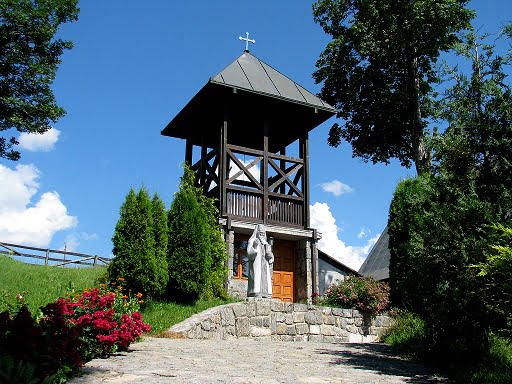
Inside, the cool air contrasts with the heat outside, offering a moment of tranquility. Narrow corridors lead to rooms adorned with frescoes and souvenirs. After leaving a donation and lighting a few candles, I stepped back outside, feeling as though even the softest sound might disturb the serene atmosphere.
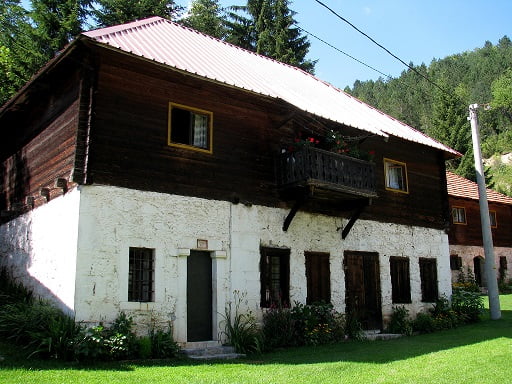
Ethno-village Štitkovo
They call it a “living ethno-village,” and that’s true—people still reside here. Štitkovo is a remarkable example of architectural heritage, once the hub of the noble Rašković dynasty. Its houses, constructed in rows facing the church, resemble urban homes from the 19th century, more akin to those in towns like Užice or Nova Varoš than rural villages. Each home has a stone basement, said to be built using materials from the Rašković family’s former mansions. Above each doorway, you’ll find the year the house was built engraved into the wood. The village’s name derives from the craft of shield-making (štit in Serbian).
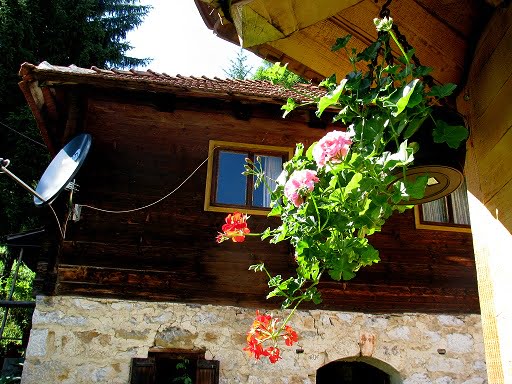
Driving another 7 kilometers, I eagerly spotted the sign for Štitkovo. Not much has changed since my last visit. As I entered the village, with its old houses climbing the hillside, I felt a mix of curiosity and unease—as though I were intruding on someone’s private life.
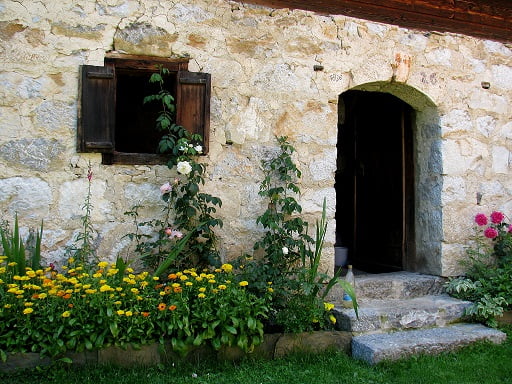
The village is small, with the church at its heart. Nearby, you’ll find a school, while rows of old houses stretch up the hill. Parking my car, I couldn’t shake the feeling of being a stranger in this timeless place. Locals seemed amused by my presence, likely wondering how I “got lost” in their valley. At the end of the road stands a newly added wooden terrace—a perfect spot to rest and plan your next move without disturbing the residents too much.
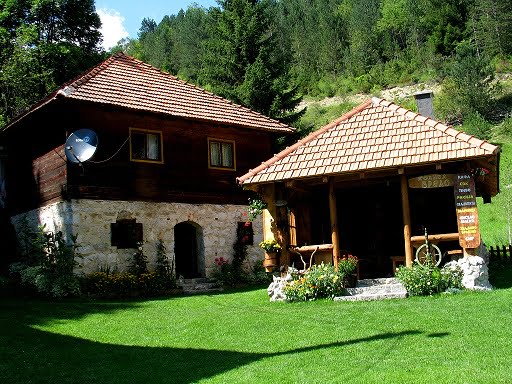
My journey continued as I drove back along the same road. Instead of turning towards the main road and Nova Varoš after passing the Uvac Reserve, I took a left, heading deeper into the countryside towards the villages of Radijevići and Drmanovići. The road stretched for about 10 kilometers through peaceful pastures, where the silence was broken only by the soft hum of my car.
In Radijevići, I had two planned stops. The first was to visit a church designed in the style of a traditional Serbian house, that celebrated its 200th anniversary. The second was a visit to the Purić family, renowned as the largest producers of buckwheat and spelt in Serbia. Their hospitality was as heartwarming as their story about this remarkable crop. Did you know that buckwheat is gluten-free and highly recommended for individuals with cardiovascular issues or those dealing with cholesterol, blood sugar, or digestion problems? This resilient plant thrives only in hilly regions above 1,000 meters, making this area perfect for its cultivation.
Sampling the local buckwheat specialties was a treat to remember! My hosts shared that buckwheat had nearly disappeared from Serbian cuisine for decades. It was rediscovered only because the locals here preserved traditional recipes, like their famous buckwheat pie, which is simply unforgettable.
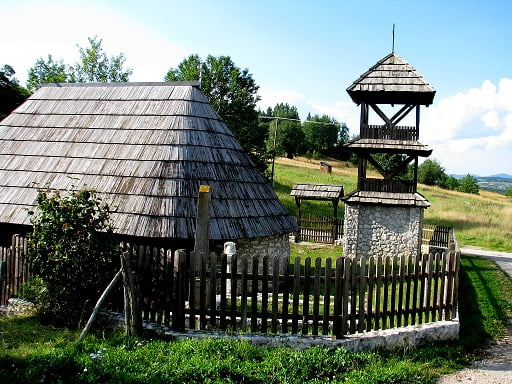
Nova Varoš Serbia
Nova Varoš is a charming town in southwestern Serbia, home to 16,500 residents, half of whom live in surrounding rural areas. Nestled at about 1,000 meters above sea level beneath Zlatar Mountain, it boasts a multicultural tradition and serves as a gateway to the region’s rich heritage.
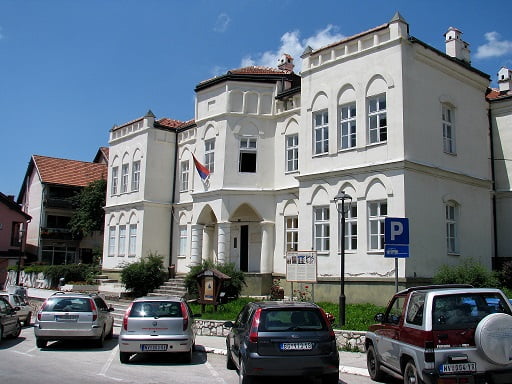
Even though the town is not particularly large, it’s well worth dedicating an entire day to exploring its charming streets and fascinating history. There’s much to see here, especially if you’re drawn to the geographical beauty of Uvac canyon Serbia or the region of Stari Vlah, which stretches from the borders with Bosnia and Montenegro to the Ovčar-Kablar Gorge in Serbia. This area once formed an administrative part of the Raška state, a Serbian country founded by Stefan Nemanja in the 12th century. Nova Varoš began to flourish, they say, around the 16th century when it became an essential hub for securing merchant caravans traveling along the road from Constantinople.
Your visit should ideally start at the Heritage Museum, where you can uncover the essentials of the town’s rich history. Learn about the locations worth visiting, the Rašković dynasty, and even explore the story of World War II commander Petar Bojović, who was born here. Among the museum’s treasures is a replica of Rašković’s saber from the 1560s—a fascinating piece of history.
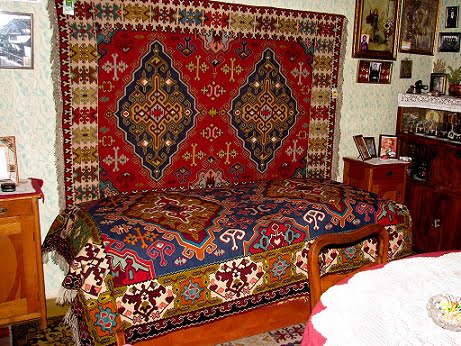
The houses lining the main street date back to the early 20th century, while the town’s mosque and church were built in the late 19th century. The museum itself is housed in the former kaymakamija, the administrative headquarters of the district chief. Built in the late 19th century, this building was considered remarkably modern for its time. Today, it graces the town’s center as a striking reminder of Nova Varoš’s past prosperity. As you continue your stroll, you’ll encounter other architectural gems from bygone eras, such as the Music’s House, the Armenian House, and the Kulić’s House. I had the pleasure of visiting the latter, guided by Mr. Pedo Korunović, a descendant of the Kulić family. He shared stories about his family’s history, including their ownership of the Kulić Han before World War II and, later, a renowned hotel. The Kulić House itself, built in 1900 using entirely natural materials, stands as a testament to timeless craftsmanship. “Just like they do in Sweden today,” my host remarked.
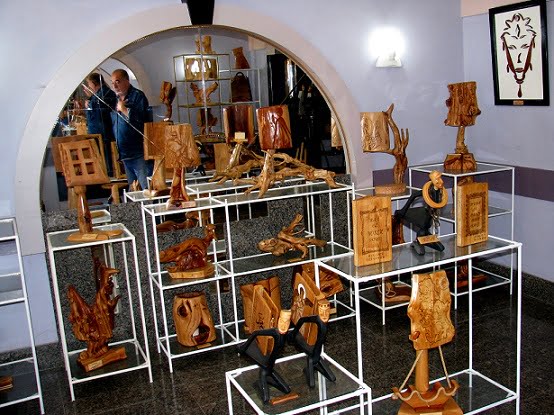
While exploring, don’t miss the gallery of Muhamed Hamko Rovčanin. Take the time to listen to the artist describe his work—such as why one of his wooden sculptures is provocatively named Brain-Eater and how, as he puts it, “all the heads have been empty ever since.” His paintings, poetry, and unique bags crafted from traditional rough fabric offer a glimpse into his creative spirit. You might even leave with a few authentic, handmade souvenirs to cherish.
And, of course, no visit is complete without sampling the local cuisine. Be sure to try the kebab—it’s a culinary delight that captures the essence of the region.
Next destination – THINGS TO DO IN ZLATIBOR SERBIA
The full THINGS TO DO IN SERBIA section
PIN IT FOR LATER:
If you need a freelance travel writer or you would like to see your country, city, flight, etc., presented on the blog, drop me an email.
Find our more on Freelance Travel Writer page.
I am looking forward to working with you.




28 responses
Gorgeous place. My parents just got back and I believe they were here too! I have yet to see any photos though. Those stone houses remind me of some of those small villages in France, gorgeous!
Oh, how lovely! Hope they had some great time here. We might have even stumbled upon one another on the way to the viewpoint, it was a bit crowded. 😀
Thank you, so glad you like the place. And say hello to your parents! <3
What a gorgeous place! I haven’t been to Serbia yet but I didn’t know about these hidden gems. I especially think the Ice Cave is amazing as I love exploring caves. Would love to go someday.
Oh, I know you’d love the place! You only get a hand lamp and go deep into the cave. The white decorations hanging from the ceiling are breath taking! One actually almost feels like a true explorer. 😀
What a lovely place!
Oh, I agree. The best thing about it is that it’s still genuine, pure, it even seems like a wilderness of some sort. I just loved it!
Thank you for stopping by, so glad you find it interesting. 🙂
How scenic! I have been to Serbia and I never got to see such beautiful nature. I love the griffon vulture! He was absolutely gorgeous.
Oh, I know. This place is not that close to Belgrade, that’s the reason few people have enough time to visit. Still, it can go up the bucket list, right! 😉
Thank you so much! <3
Serbia looks absolutely stunning! I haven’t been yet, but I’ve heard so many great things about it from fellow friends and travellers. I’d love to take a boat ride through the canyon in the Uvac Nature Reserve. Are there any adventure type sports to do in the area?
Oh yes, there are hiking and bicycle trails through the mountain terrain, the Adventure Park itself, but people come for tracking paths along the lake as well. They can take for dozens kilometers through the woods.
Thank you, Zoya! 🙂
This is a part of the world we have yet to see. It looks SO beautiful! Will definitely check this when we go.
Thank you, so glad the post makes you want to go. It really is a compliment! 🙂 Would love to hear your impressions one day.
What a beautiful place! It seems to be becoming more and more popular as a travel destination, and it’s easy to see why.
Oh, yes, a lot to see! It’s still somewhat a hidden gem for the rest of the world it seems. But you’re right, that’s changing rapidly.
Serbia Uvac National Park seems like a fabulous option for people craving the outdoors and fresh mountain trails. I have made a note of this for future. Serbia is stunning and unspoilt.
Yep, save this one for later and don’t miss it if you happen to stop by Balkans. It’s so worth it. Thank you! 🙂
What a wonderful trip with lots of amazing natural landscapes.. Such a photographer’s dream indeed with lots of photo opportunities.. 🙂 Haven’t been to Serbia but I’d love to visit just to see those views!
Believe me, it would be worth it if only to come for few spectacular views Serbia has to offer. I’ll be posting about few others soon.
Thanks, Marvi! <3
Wow! Serbia is such an awesome place. Never visited this place but I think I’m going to put it in my bucket list. Thanks for an amazing travelogue and beautiful pics.
Oh, so glad you enjoyed it! Would love to hear about your impressions when you do come.
Thank you, cheers! 🙂
Wow Serbia is a beautiful place. Those ice cave decorations are gorgeous and I’d love to see them some day!
For those who love caves, this is such a treat. Thank you, Shivani! 🙂
Wow! I would have never thought that Serbia has so many fascinating landscapes and sights, Danijela. This national park is an exceptional travel destination. Is it easy to find good accommodation there?
It is. You can choose whether to stay in a hotel or rent a house, a room etc. on Zlatar mountain. It easy to navigate to Uvac from there. And it’s great to wake up to mountain trees and fresh air! <3
Thank you, Lydia. 🙂
Im going this summer, so I was wondering how do we get to the place where we get on the boat? Driving directions please.
Do we have to book ahead of time, since the boat only leaves at 10am?
Is the parking free, to leave our car?
Thanks!
You don’t have to book ahead, but it’s advisable to call few days in advance to ask about the boat ride, especially if the season is busy. Here’s the Uvac Reserve number: +3813364198, and the guide Stevo’s mobile: +381648674710. E-mail: office@uvac.org.rs.
The easiest way would be to check with their office in Nova Varos or to call them and get all the info. The parking is free.
Hope this helped. 🙂
Would love to hear your impressions. Make sure to stop by again. 🙂
Hi Danijela, I presume we take a bus from Belgrade to Zlatar? What is the name of the town that is closest to Zlatar mountain? Any recommendations on the base town for visiting Zlatar mountain/ lake by bus / taxi?
Hey. 🙂
Yes, from Belgrade by bus or a car. The closest town is Nova Varosh, it’s right beneath the mountain, few km away.
If I were you, I’d probably stay on Zlatar mountain for couple of days in order to visit Uvac Reserve for a day and then few other things the day after. The mountain is totally pristine.